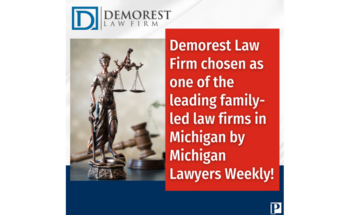Typically, the False Claims Act, 31 U.S.C. §§ 3729–33, which was enacted during the Civil War to deal with unscrupulous defense contractors, is used against government contractors suspected of procurement fraud. But given the recent COVID 19 crisis, and, more specifically, the role that the U.S. Small Business Administration is taking to support impacted small businesses, should these businesses (or even lenders) be concerned about FCA liability in connection with the millions of SBA-guaranteed loans provided to help them weather the crisis? Let’s explore.
The False Claims Act provides a cause of action for the Government, and whistleblowers in qui tam actions, and states, in relevant part:
(1)In general.—Subject to paragraph (2), any person who—
(A)knowingly presents, or causes to be presented, a false or fraudulent claim for payment or approval;
(B)knowingly makes, uses, or causes to be made or used, a false record or statement material to a false or fraudulent claim;
. . . .
is liable to the United States Government for a civil penalty of not less than $5,000 and not more than $10,000, as adjusted by the Federal Civil Penalties Inflation Adjustment Act of 1990 (28 U.S.C. 2461 note; Public Law 104–410 [1]), plus 3 times the amount of damages which the Government sustains because of the act of that person.
31 U.S.C. 3729(a)(1). Further, the DOJ previously has taken the position that false certifications with respect to SBA-guaranteed loans can be actionable under the False Claims Act. Guidance from the SBA OIG mirrors that position. This brings us to the Paycheck Protection Program.
The PPP, part of the Coronavirus Aid, Relief, and Economic Security (“CARES”) Act, is designed to incentivize small businesses to keep their workers on payroll by allowing lenders to provide SBA-guaranteed loans, which are to be forgiven if: (1) employees are kept on the payroll for eight weeks; and (2) the money is used for payroll, rent, mortgage interest, or utilities.
Notably, the loan application requires the applicant to make various certifications as to its need for assistance, including the following:
ii. Current economic uncertainty makes this loan request necessary to support the ongoing operations of the applicant.
iii. The funds will be used to retain workers and maintain payroll or make mortgage interest payments, lease payments, and utility payments; [Borrower] understand[s] that if the funds are knowingly used for unauthorized purposes, the Federal Government may hold [it] legally liable such as for charges of fraud. As explained above, not more than 25 percent of loan proceeds may be used for non-payroll costs.
. . . .
vii. [Borrower] further certif[ies] that the information provided in this application and the information provided in all supporting documents and forms is true and accurate in all material respects.
Because borrowers must certify as to their eligibility, they could face FCA liability for knowing misstatements, or even well-intentioned, but significant, errors, in connection with the submission of their PPP application forms. Of course, while proving the intent element of any FCA claim is a significant hurdle for the DOJ, or a qui tam relator, a potential False Claims Act lawsuit, or merely an investigation, could be extraordinarily costly to defend, even if ultimately unsuccessful. Further, while the government surely does not want to discourage lenders from participation in the Program—a concern reflected in the implementing rules—the “causes to be presented” language in 31 U.S.C. 3729(a)(1)(A) would, in theory, hold a financial institution responsible for an egregious failure to properly review a borrower’s documentation under certain circumstances.
The bottom line is that, although the risk is low to the overwhelming majority of Program participants, they should nonetheless exercise the proper precautions to minimize the risks of potential False Claims Act liability. And given the well-publicized backlash after a number of large publicly traded corporations received money prior to the depletion of the first round of funding, this is likely to be an area that will receive a lot of scrutiny going forward.
We will continue to monitor developments about these critical issues, so expect more updates to come.



